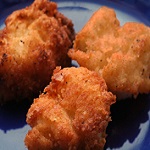Last Updated on November 10, 2021
Israeli & Middle Eastern Food
Hebrew: אוכל ים תיכוני ואוכל ישראלי
The cuisine of the Middle-East includes plenty of fresh produce, dried pulses, olives, olive oil, yogurt, fresh parsley, mint, lamb, chicken and fish. The cuisine makes use of lots of spices such as sumac, cumin, allspice, cinnamon and cayenne pepper and all are used in abundance. Other dominant flavors in Middle-Easter cuisine include lemon juice, tahini and flower-flavored waters. We have selected a few recipes where yoghurt, mint and olive oil are widely used:
Shakshuka: Tomato based, vegetables and fried eggs
Originally a Tunisian dish, shakshuka has become popular all over the Middle East. You will find it on the menu at most restro-cafes here in Israel. The original recipe calls for hot green-peppers, but you will also find zucchini, eggplant and potatoes as extra ingredients. Salty white cheese like Feta, adds an extra dimension to the dish.
The base of shakshuka is a very well seasoned, tomato sauce. Some chefs will cook their tomatoes for hours until the sauce is thick and all the flavors have developed. For busy cooks, you may not want to spend more than half an hour prepping this dish so if you can get your hands on a ready-to-go tomato sauce (with onions, garlic, basil etc.), then all you need to do is spice it up the way you like it before you add the eggs.
Chef’s Tip
- You can use Bulgarian cheese, Roquefort or feta cheese.
- It is customary to eat shakshukah on Saturday mornings so serve with chunks of fresh challah bread.
- For a slightly different twist, slice and fry some Vienna sausages, one per person, and add it to the shakshuka before you add the eggs.
Now, click here for the shakshuka recipe…
 Cacik: Yogurt & Cucumber Salad
Cacik: Yogurt & Cucumber Salad
Cacık (ja-jik) is a dish of seasoned, diluted yogurt, eaten throughout Turkey and the former Ottoman countries. In Greece a similar, much thicker yogurt dish is called tzatziki which is also similar to tarator in the Balkan cuisine. Cacik is served cold in very small bowls usually as a side dish or with ice cubes.
Ingredients
- 500ml white natural yoghurt
- 1- 2 cloves or garlic, crushed
- a few sprigs of fresh mint, chopped finely
- 1 large cucumber, peeled and chopped
- 2 tblsp olive oil
- salt and pepper
Mix all the ingredients together in a large bowl. Adjust flavors if necessary.
- On the Pita, Hummus & Falafel Trail
- Herbs & Spices of the Israeli Kitchen
- Fruits and vegetables in season
Tunisian Cauliflower Fritters
There is a Lebanese version of this dish which is called Em-Shaat. Served for Shavuot, these cauliflower fritters, makes a light and nice entrée. Deep-fried foods are traditionally eaten on Hanukah so, you might want to serve this as an addition to traditional potato latkes.
Ingredients
- 1 large cauliflower cut into florets
- 75g plain flour
- 2 eggs
- juice of one lemon
- 125 Gruyere or Cheddar cheese, grated
- 1/4 tsp nutmeg
- pinch of chili powder (optional)
- 1 garlic clove, crushed (optional)
- oil for deep frying
- salt
Directions
- Boil the cauliflower in lightly salted water for five minutes or until just tender.
- Beat the flour with the eggs and lemon juice until well blended. Add the cheese and nutmeg, chili powder and garlic. Leave for 30 minutes.
- Separate the florets into bite-size pieces and Add them to the batter mixture
- Heat the oil until hot but not smoking. Drop in tablespoons of the mixture and deep fry until browned, turning once. Drain on kitchen paper and serve hot.
Chef’s Tips
- It is very important not to overcook the cauliflower. It will become waterlogged and your fritters will turn into a soggy mess.
- In Israel, Tal Ha’emek cheese is a perfect substitute for Gruyere
Your friends enjoyed these…
- Popular varieties of Israeli cheese
- Recipes for Jewish holidays and festivals
- Hebrew-English: Baking Terms


 Cacik: Yogurt & Cucumber Salad
Cacik: Yogurt & Cucumber Salad
